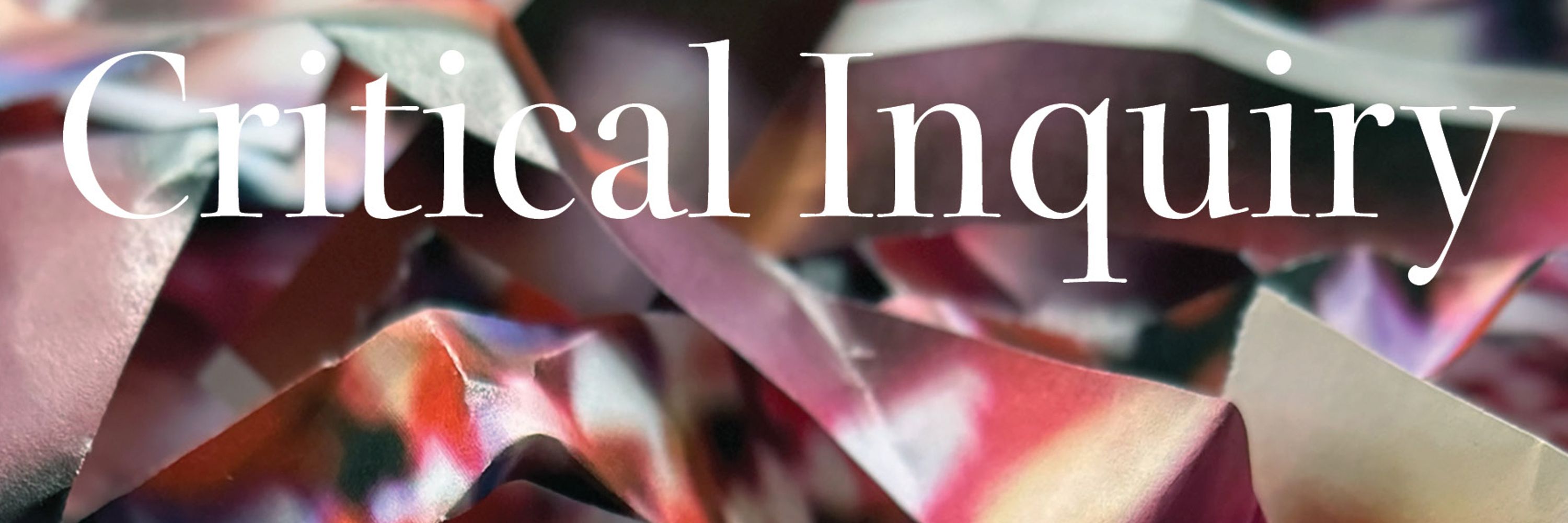
New in review, Senida Poenariu on Elías J. Palti's Intellectual History and the Problem of Conceptual Change: criticalinquiry.uchicago.edu/senida_poena...

New in review, Senida Poenariu on Elías J. Palti's Intellectual History and the Problem of Conceptual Change: criticalinquiry.uchicago.edu/senida_poena...
From our Autumn 2003 issue, read Benjamin Robinson's "The Specialist on the Eichmann Precedent": www.journals.uchicago.edu/doi/full/10....

From our Autumn 2003 issue, read Benjamin Robinson's "The Specialist on the Eichmann Precedent": www.journals.uchicago.edu/doi/full/10....

From our Winter 2008 issue, read Daniel Tiffany's "Rhapsodic Measures": www.journals.uchicago.edu/doi/full/10....

From our Winter 2008 issue, read Daniel Tiffany's "Rhapsodic Measures": www.journals.uchicago.edu/doi/full/10....
New in review, Olga V. Solovieva on The Oxford Handbook of Soviet Underground Culture: criticalinquiry.uchicago.edu/olga_v_solov...

New in review, Olga V. Solovieva on The Oxford Handbook of Soviet Underground Culture: criticalinquiry.uchicago.edu/olga_v_solov...

From Autumn 2010, read Keri Walsh's "Why Does Mickey Rourke Give Pleasure?": www.journals.uchicago.edu/doi/full/10....
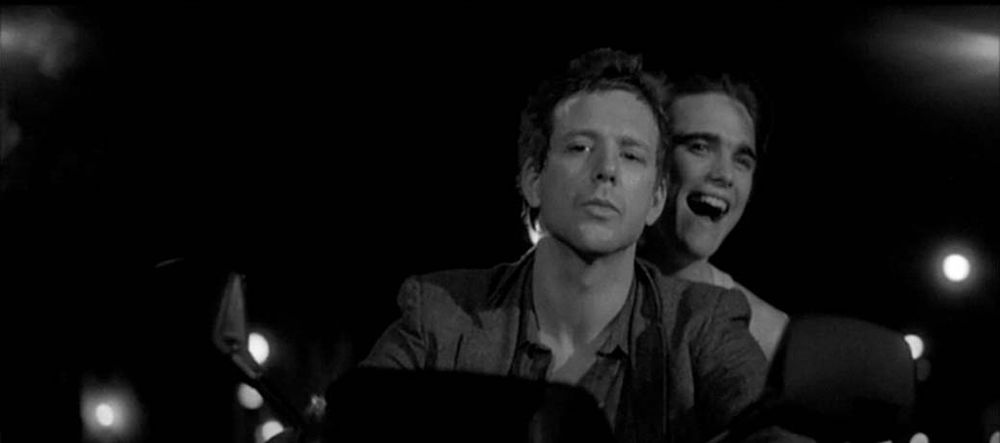
From Autumn 2010, read Keri Walsh's "Why Does Mickey Rourke Give Pleasure?": www.journals.uchicago.edu/doi/full/10....
New in review, Jacobé Huet on Zimmerman's Albert Kahn Inc. criticalinquiry.uchicago.edu/jacobe_huet_...

New in review, Jacobé Huet on Zimmerman's Albert Kahn Inc. criticalinquiry.uchicago.edu/jacobe_huet_...
New in review, Jacobé Huet on Zimmerman's Albert Kahn Inc. criticalinquiry.uchicago.edu/jacobe_huet_...

New in review, Jacobé Huet on Zimmerman's Albert Kahn Inc. criticalinquiry.uchicago.edu/jacobe_huet_...
From our Winter 2015 issue, read Sigrid Weigel's "The Flash of Knowledge and the Temporality of Images": www.journals.uchicago.edu/doi/full/10....
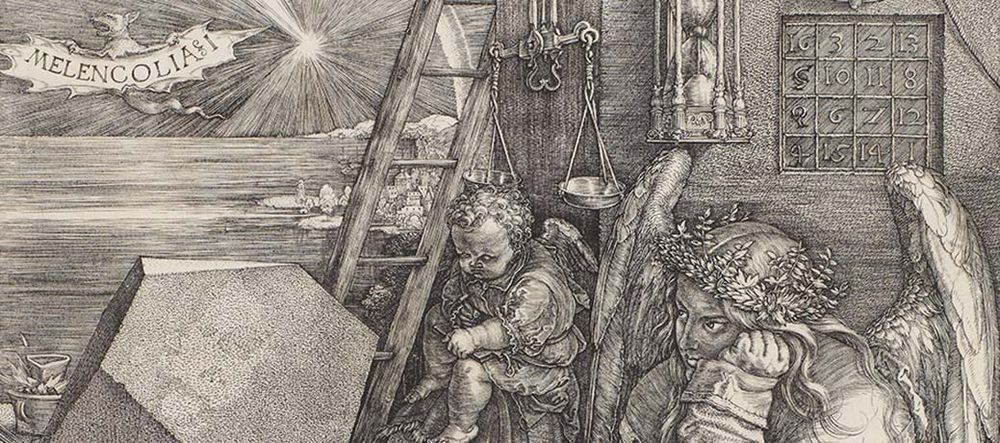
From our Winter 2015 issue, read Sigrid Weigel's "The Flash of Knowledge and the Temporality of Images": www.journals.uchicago.edu/doi/full/10....
From our Summer 2013 issue, read Nick Salvato's "Cringe Criticism": www.journals.uchicago.edu/doi/full/10....

From our Summer 2013 issue, read Nick Salvato's "Cringe Criticism": www.journals.uchicago.edu/doi/full/10....
Matthew Kirschenbaum on Hagen Blix and Ingeborg Glimmer's Why We Fear AI: criticalinquiry.uchicago.edu/matthew_kirs...

Matthew Kirschenbaum on Hagen Blix and Ingeborg Glimmer's Why We Fear AI: criticalinquiry.uchicago.edu/matthew_kirs...
From our Winter 2015 issue, read Sigrid Weigel's "The Flash of Knowledge and the Temporality of Images": www.journals.uchicago.edu/doi/full/10....

From our Winter 2015 issue, read Sigrid Weigel's "The Flash of Knowledge and the Temporality of Images": www.journals.uchicago.edu/doi/full/10....
Matthew Kirschenbaum on Hagen Blix and Ingeborg Glimmer's Why We Fear AI: criticalinquiry.uchicago.edu/matthew_kirs...

Matthew Kirschenbaum on Hagen Blix and Ingeborg Glimmer's Why We Fear AI: criticalinquiry.uchicago.edu/matthew_kirs...
From our Summer 2017 issue, read James J. Hodge's "Digital Psycho": www.journals.uchicago.edu/doi/full/10....

From our Summer 2017 issue, read James J. Hodge's "Digital Psycho": www.journals.uchicago.edu/doi/full/10....
New in review, Lucky Issar on Margaret A. Brucia's The Key to Everything, from @princetonupress.bsky.social: criticalinquiry.uchicago.edu/lucky_issar_...
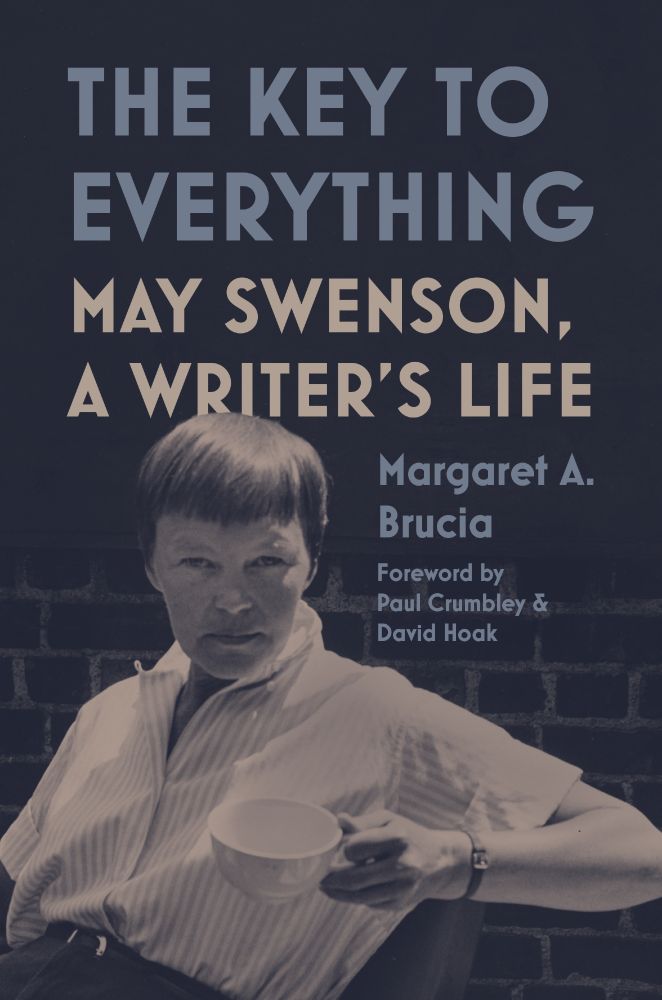
New in review, Lucky Issar on Margaret A. Brucia's The Key to Everything, from @princetonupress.bsky.social: criticalinquiry.uchicago.edu/lucky_issar_...
From our new issue, read Brian Massumi's "Some Points about Contemporary Fascism": www.journals.uchicago.edu/doi/full/10....

From our new issue, read Brian Massumi's "Some Points about Contemporary Fascism": www.journals.uchicago.edu/doi/full/10....
From our new issue, read Wendy Anne Lee's "Hate, Consent, Play": www.journals.uchicago.edu/doi/full/10....
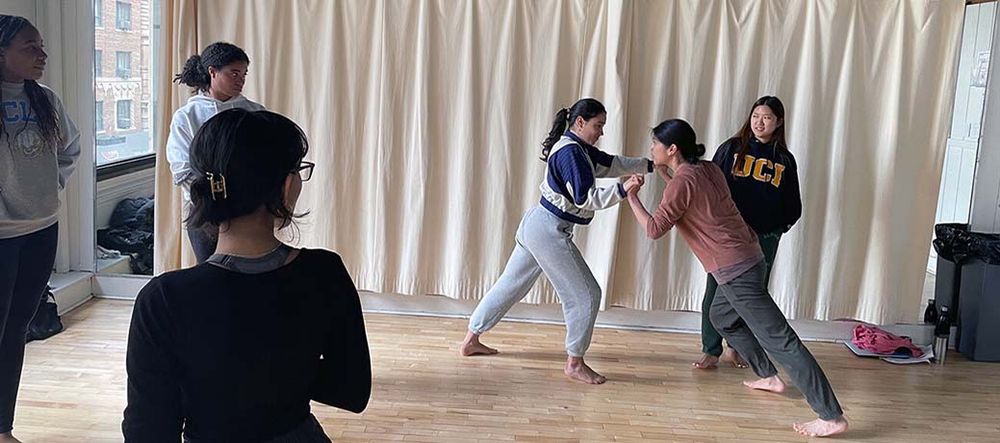
From our new issue, read Wendy Anne Lee's "Hate, Consent, Play": www.journals.uchicago.edu/doi/full/10....
From our new issue, read Brian Massumi's "Some Points about Contemporary Fascism": www.journals.uchicago.edu/doi/full/10....

From our new issue, read Brian Massumi's "Some Points about Contemporary Fascism": www.journals.uchicago.edu/doi/full/10....
New in review, Christopher Gortmaker on Jensen Suther's True Materialism: criticalinquiry.uchicago.edu/christopher_...

New in review, Christopher Gortmaker on Jensen Suther's True Materialism: criticalinquiry.uchicago.edu/christopher_...
From our new issue, read Bernard Dionysius Geoghegan's "The Navigable Image": www.journals.uchicago.edu/doi/full/10....

From our new issue, read Bernard Dionysius Geoghegan's "The Navigable Image": www.journals.uchicago.edu/doi/full/10....
From our new issue, read Wendy Anne Lee's "Hate, Consent, Play": www.journals.uchicago.edu/doi/full/10....

From our new issue, read Wendy Anne Lee's "Hate, Consent, Play": www.journals.uchicago.edu/doi/full/10....
New in review, Christopher Gortmaker on Jensen Suther's True Materialism: criticalinquiry.uchicago.edu/christopher_...

New in review, Christopher Gortmaker on Jensen Suther's True Materialism: criticalinquiry.uchicago.edu/christopher_...
From our new issue, Jennifer Rae Greeson's "Thomas Hobbes, the Virginia Company, and the Invention of Corporate Sovereignty": www.journals.uchicago.edu/doi/full/10....

From our new issue, Jennifer Rae Greeson's "Thomas Hobbes, the Virginia Company, and the Invention of Corporate Sovereignty": www.journals.uchicago.edu/doi/full/10....
From our new issue, read Bernard Dionysius Geoghegan's "The Navigable Image": www.journals.uchicago.edu/doi/full/10....

From our new issue, read Bernard Dionysius Geoghegan's "The Navigable Image": www.journals.uchicago.edu/doi/full/10....

